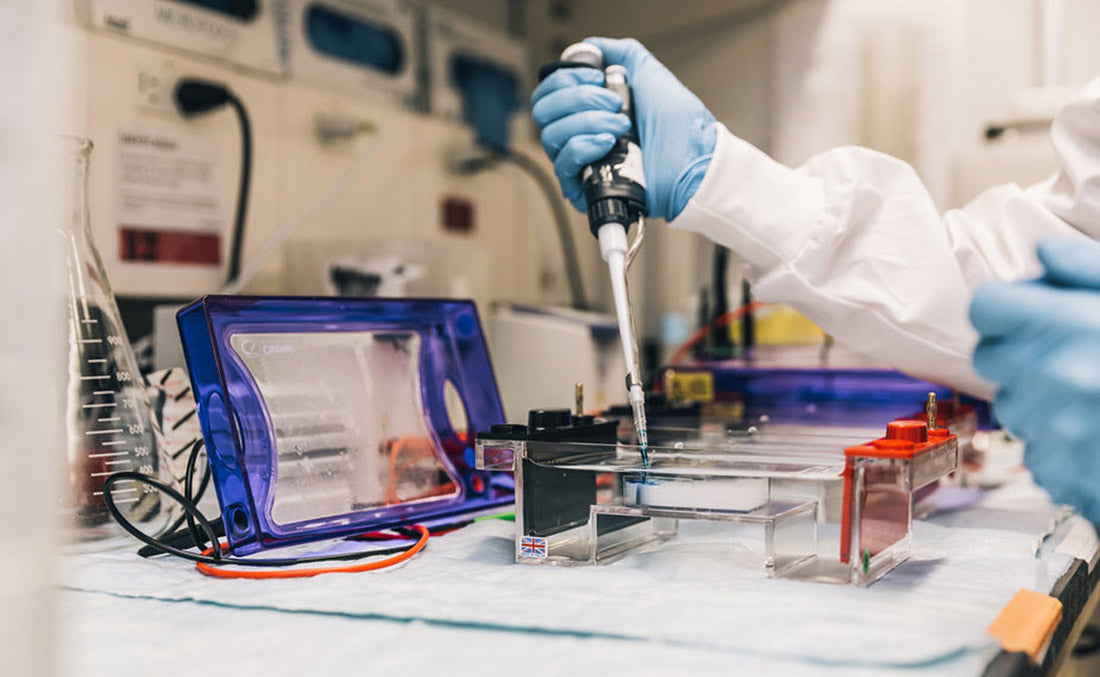-
Column chromatography. (Common technique)
- Plastics
- Pesticides
- Drugs
- Water Samples
- Air Samples
Applications Using Chromatography
The applications for chromatography are diverse and widely practiced. Liquid chromatography is one of the more notable analytical tools used in the pharmaceutical industry. By establishing the components of a drug formulary, researchers can check for product impurities and easily achieve quantification for mass scaling.
Interesting Fact: Barry L. Karger, the 2022 winner of the Lifetime Achievement in Chromatography Award, is the Director Emeritus of the Barnett Institute for Chemical and Biological Analysis and the James L. Waters Emeritus Chair and Distinguished Professor Emeritus at Northeastern University in Boston. One of his more significant societal contributions went to his chromatography work used in the genome project, whereas his discovery led to the novel use of automatic sequencing technology in genomic analysis.
Forensic Science
Forensic pathology and crime scene testing like analyzing blood and hair samples of crime places.
Food and Beverage Quality Testing
Chromatography determines certain chemical properties that result in food spoilage and any undesired additives to food selections. The practice is also used to determine the nutritional quality of food.
Water and Air Sample Testing
Many industries utilize HPLC and GC for detecting various contaminants, such as polychlorinated biphenyl (PCBs) in pesticides and oils in water.
Molecular Biology
The various techniques in chromatography, such as liquid chromatography, are applied in the study of multiple omic-type specialties along with nucleic acid research. I.e., proteomics, genomics, metabolomics
HPLC or high-performance liquid chromatography is a proven methodology in separation proteins such as in Insulin purification, plasma fractionation, and enzyme purification and in various departments like the fuel industry, biotechnology, and biochemical processes.
Pharmaceutical R & D
The pharmaceutical industry uses chromatography to identify and analyze samples for the presence of trace elements or chemicals. It enables researchers to separate various compounds based on their molecular weight and element composition. More interesting, chromatography is used towards developing certain therapeutic drugs and vaccines.
Interesting Fact: Scientists used Chromatography in the fight against the Ebola virus, responsible for over 11,000 deaths, to develop the experimental immunization Zmapp.
Temperature Control and Chromatography
Temperature has a large effect on retention, selectivity, and column efficiency and has long been accepted as an important parameter in liquid chromatography (LC). Column chromatography allows gravity to pull the mixture through the polar or non-polar phases, separating each solvent as it goes. However, gravity is not always enough, so scientists utilize pressure and temperature to accelerate the process and elicit better results.
Higher temperatures in the chromatographical process often result in shortened separation times, increased efficiency, and reduced column back pressure. Because elevated temperatures help accelerate particulate movement, technicians can use longer columns to test smaller particles with accurate readings.
This is a widespread practice when using chromatography to separate proteins. However, many proteins are not stable under room temperature conditions which makes it necessary to place the separation unit needs to place in a specialized chromatography refrigerator or cold room.
Chromatography Refrigerators
Chromatography is a precise scientific method that is used in laboratory practices. In most laboratory environments, researchers require dedicated space for projects such as separating proteins making the use of a cold room a consideration. However, most researchers find that some of the components are fine at room temperature while others require refrigeration. For ultimate ease and safety, a chromatography refrigerator is a practical investment for the housing of chromatography samples.
Chromatography samples are designed with precise temperature controls and alarms. They come in a wide variety of styles and sizes and with varying accessories to make them user friendly.
K2 Scientific offers chromatography refrigeration at low price points making them easily accessible for any size laboratory. Contact a team member for more information.
